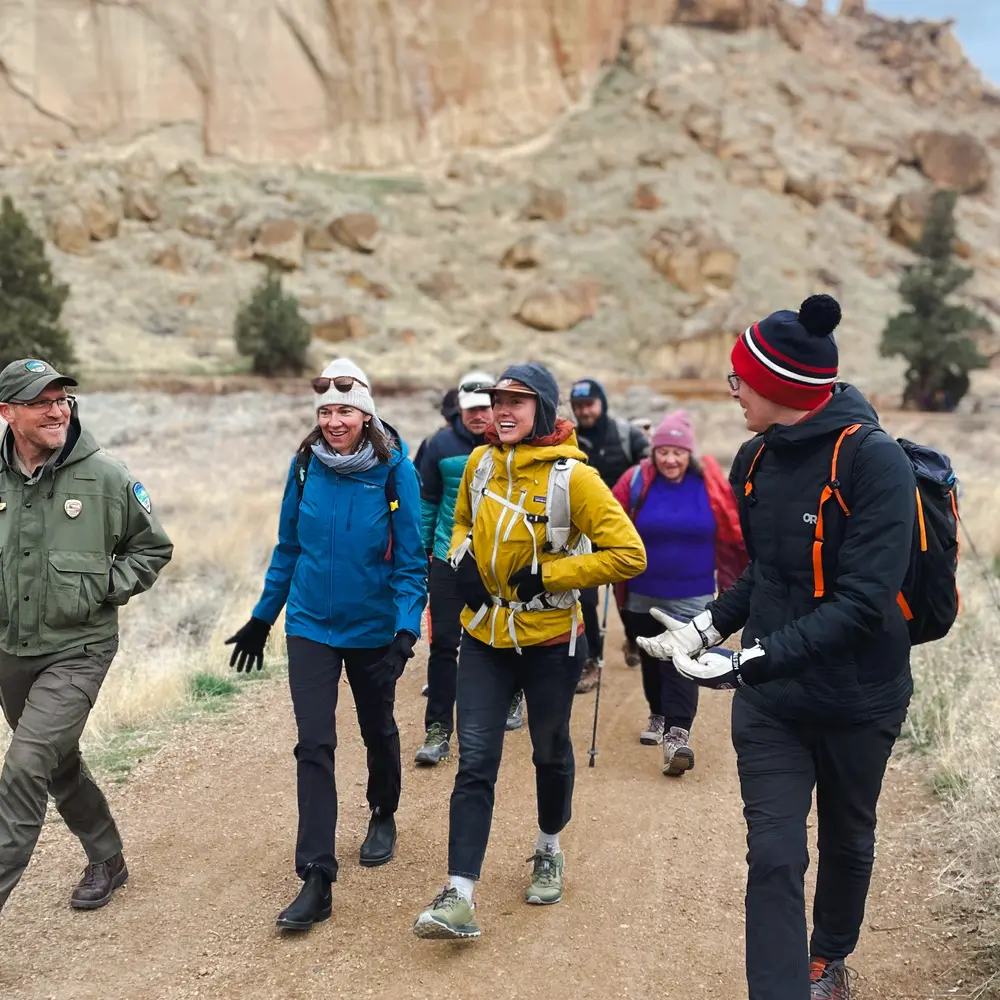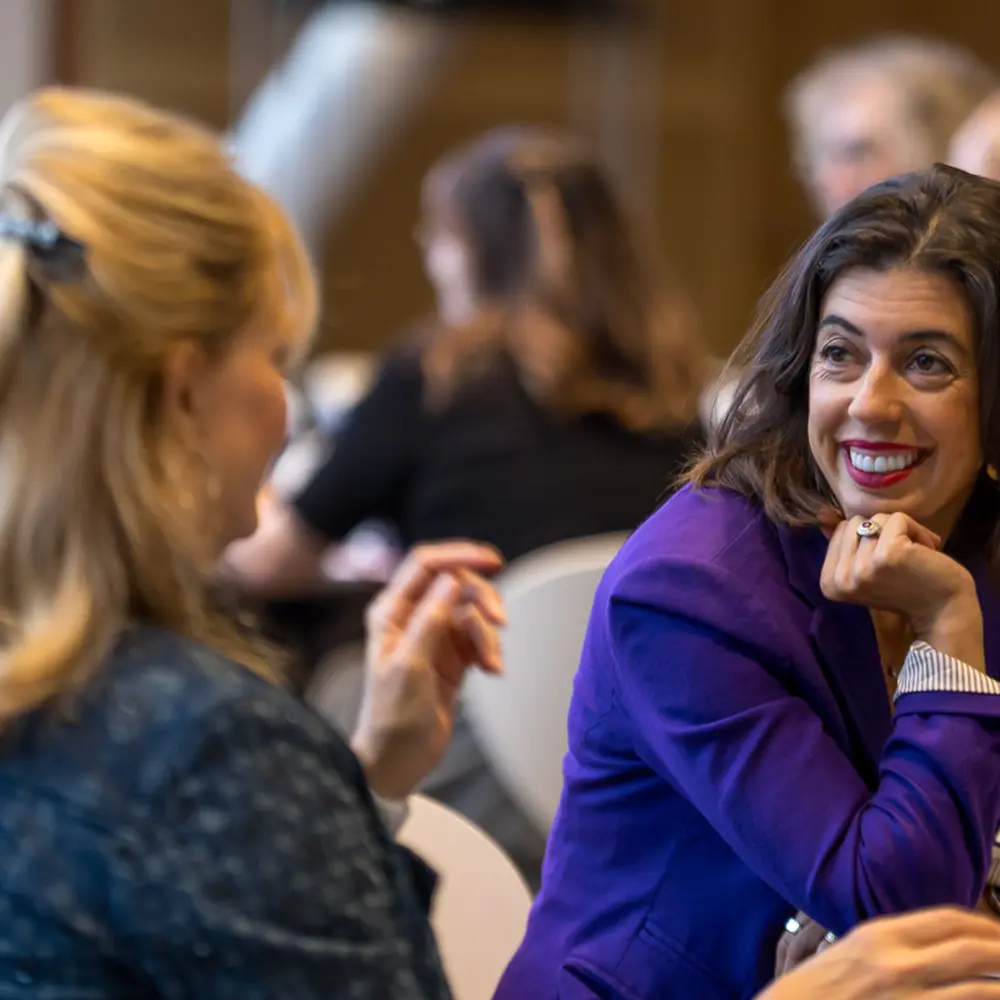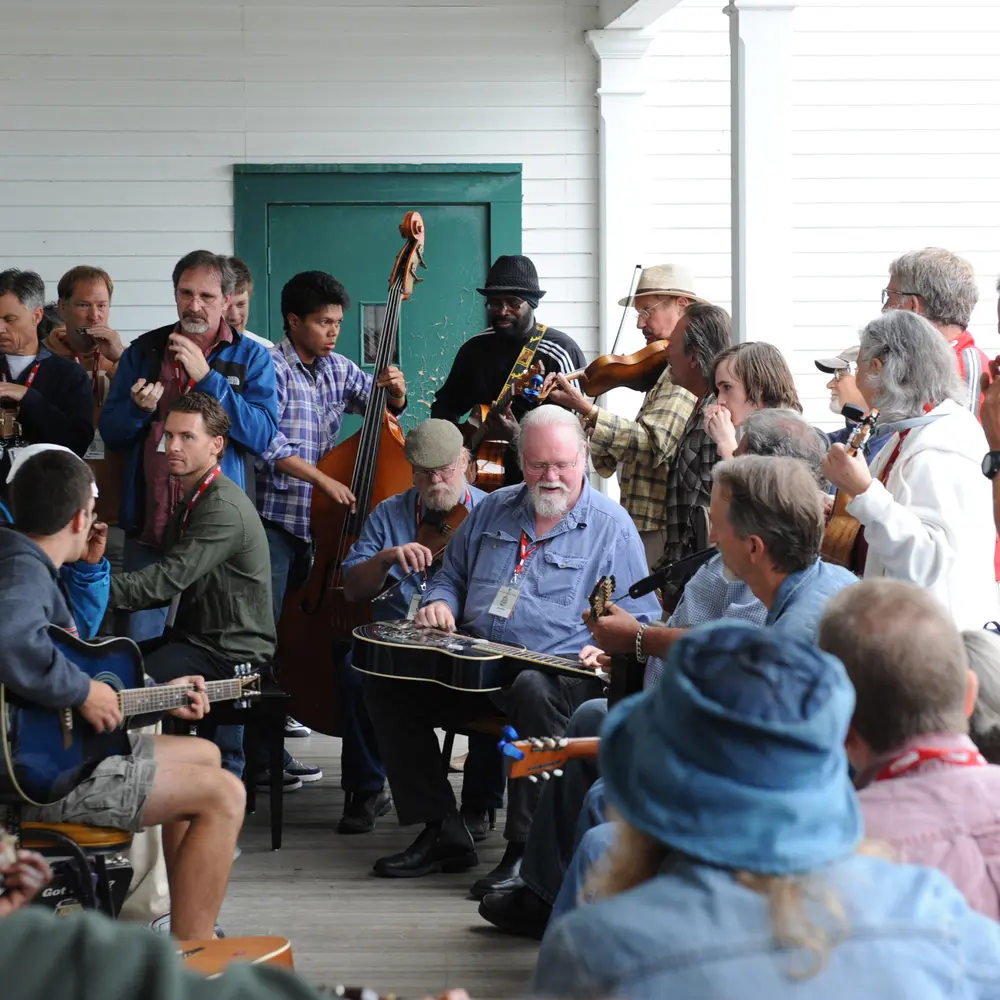The Murdock Trust is committed to the flourishing of all Pacific Northwest communities. During certain months of the year, we join those honoring the contributions, successes, and challenges of certain groups among us. November is Native American Heritage Month, and though listening to and uplifting our Native American neighbors is a year-round priority, we are grateful for the opportunity to sit down with one of our regional leaders in this community, Prairie Blount, for further reflections on this month.
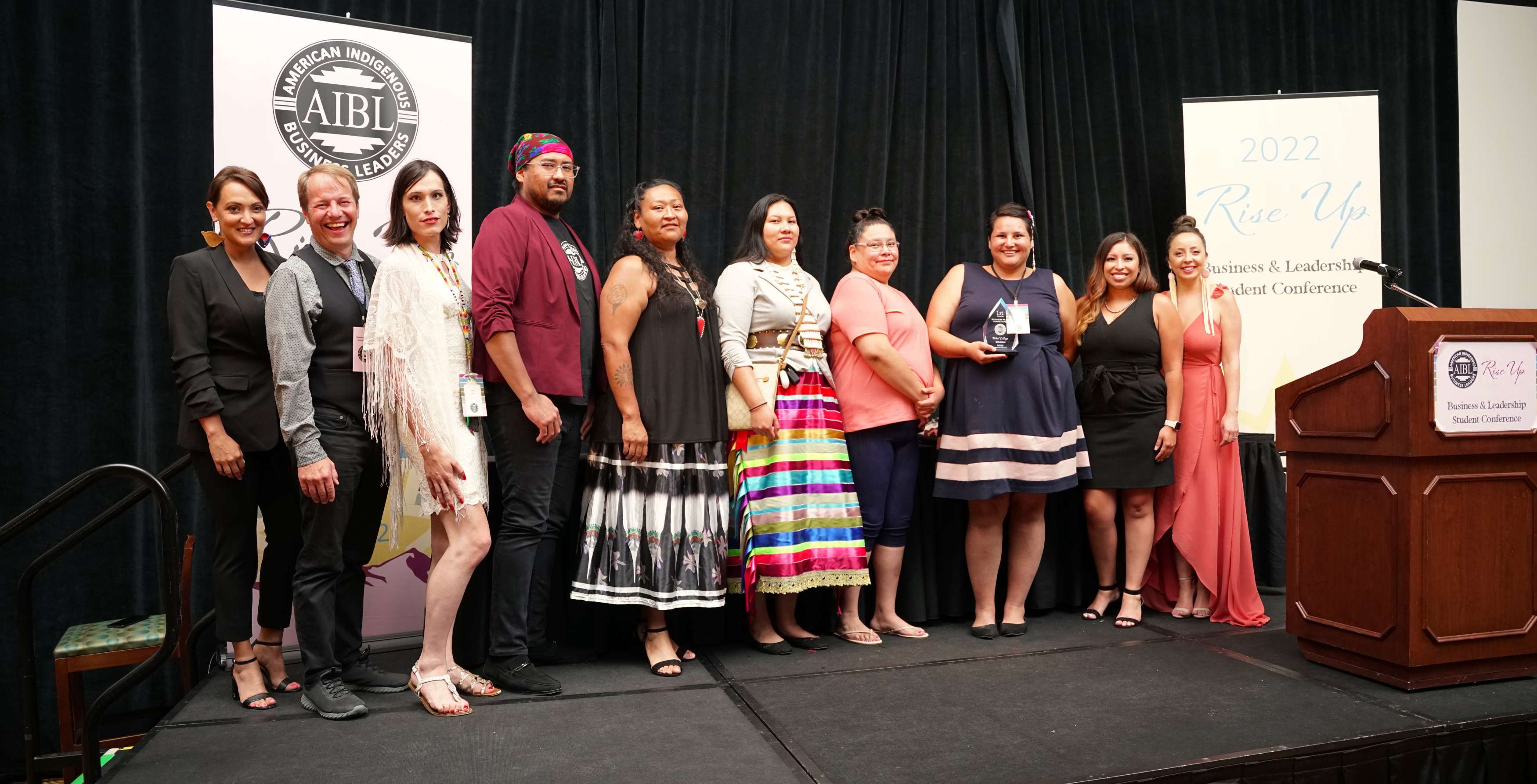
“I truly believe that healthy communities are made up of individuals who are doing what they are passionate about,” says Prairie Blount, executive director of American Indigenous Business Leaders (AIBL). “Individuals who get out of bed and are like, ‘Yes, it’s Monday! I can’t wait to get to my job.’”
Historically, many from Native communities have faced challenges in receiving the education and work experience that lead to fulfilling jobs like Blount describes. According to the Postsecondary National Policy Institute, in 2020 just 22% of 18-24-year-olds who identified as American Indian or Alaska Native were enrolled in college, compared to 40% of the overall U.S. population. Without education, internships, or jobs that allow students to explore their interests and expand their horizons, many young people take a job just to pay the bills. Blount explains that this is a cycle many Native communities have historically found themselves in, but that recent generations of tribal elders have encouraged the pursuit of education. They’re starting to see the ripple effects.
“I think we’re at a really exciting point in history,” says Blount, “because we’re seeing where Natives have been educated, and gotten amazing work experience, and they’ve never forgotten the call to come home and use that experience to make our communities better.”
For example, Blount’s parents were first generation college students, but thanks to their example, pursuing higher education seemed possible for Blount herself. Now, her oldest son is entering college.
“The ripple effect is the normalization of getting an advanced education, of getting experience beyond what you could if you didn’t have a degree. It opens doors for people to have options so they can find a job they’re passionate about.”
That, Blount says, is what leads to flourishing communities. And that’s exactly the vision for generational change that AIBL works towards as it supports student success.
Creating Pathways to Flourishing
AIBL is a Montana-based, national-serving nonprofit that supports students from Indigenous communities through scholarships, mentorship programs that run throughout the school year, an internship program in the summer, and an annual conference. While scholarships help meet the financial needs that many students from Native communities face, the programming provides important structure and connection. For many of these students, going to college is their first experience living outside of their tribal community. A weekly AIBL meeting with peers who can relate to their cultural background is a lifeline for many students as they adjust to their new environment while learning important business skills. And, Blount adds, many stay lifelong friends.
“These kinds of connections are really valuable for students,” says Blount, “because they keep students plugged in. It’s harder for them to be like, ‘I’m just going home.’”
AIBL students are two times more likely to graduate than their peers who are not plugged into an extracurricular program. And once they graduate, they are better set up for career and life success because of the business training, job experience, and networking AIBL has provided. This equips them to return to their tribal communities and bring creative change where it is needed – or to go out into the world and offer their valuable perspective with confidence.
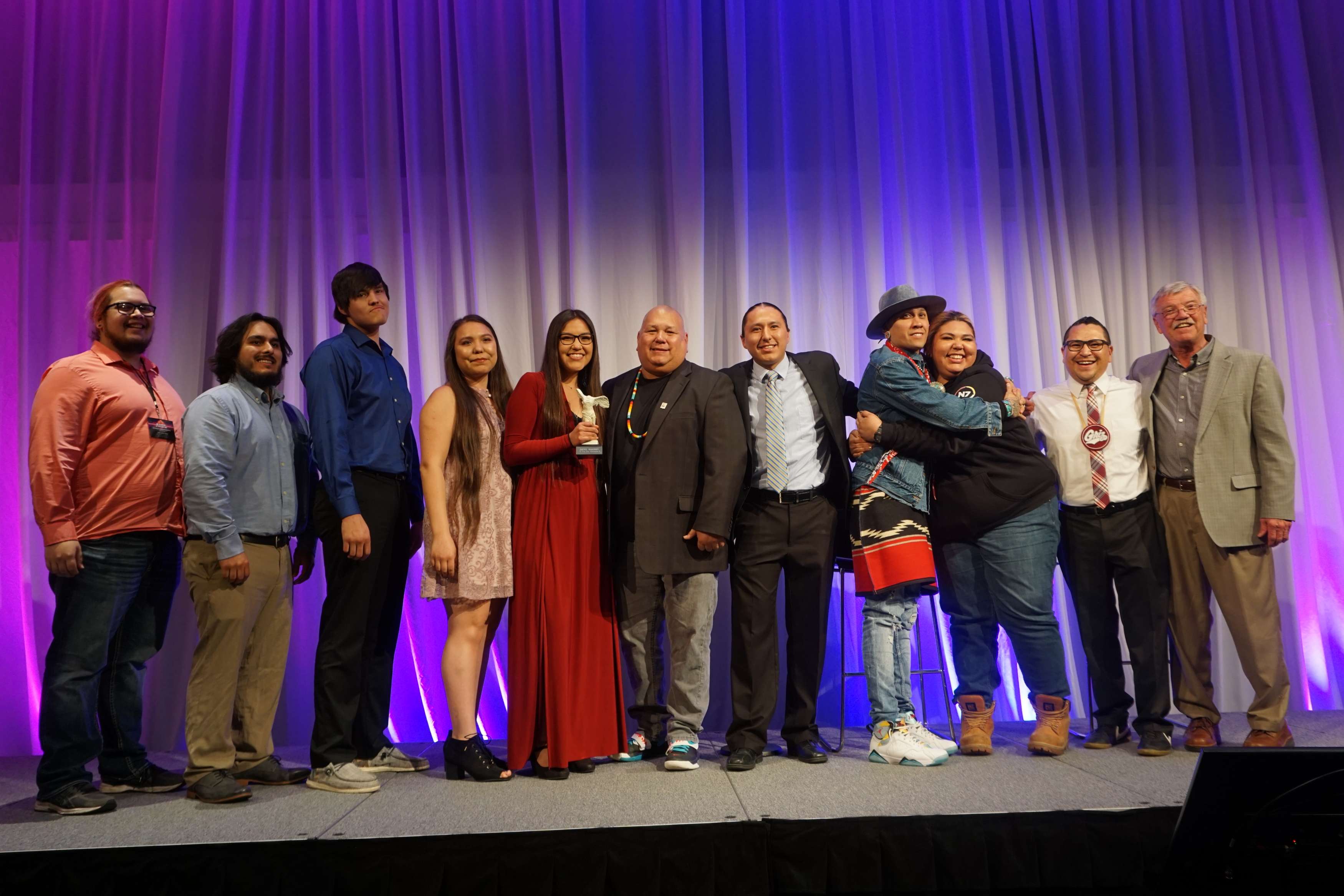
Celebrating Indigenous Representation
Blount sees that this Indigenous perspective is becoming more recognized, valued, and sought in the corporate world. She feels encouraged at the growing Indigenous representation in global brands and on the covers of fashion magazines, all of which remind AIBL and other students from Native communities that their presence is needed and their perspective valued.
“It’s an indication that society is recognizing Indigenous culture. Recognizing that this land was originally given to Indigenous people, and that we’re still here. I love that recognition for my students because it makes them realize the value that they have when they go into a corporation. They can lean into who they truly are, and create solutions that other people wouldn’t be able to create because they come from such different life experiences.”
Ultimately, AIBL seeks to equip students to lean into this full potential.
“We’re doing our best here at AIBL to make sure our students have the tools to be their best self. The kind of person who wakes up in the morning and can go to work because they’re able and comfortable being their full, authentic self. Because that’s really the true value of diversity – being authentic.”
This Native American Heritage Month, we say a special thank you to Blount, her team at AIBL, and all organizations who create pathways to success for those from Indigenous communities.

